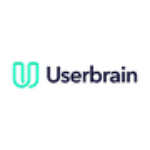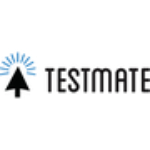List of Best User Research Software
Showing 10 of 25 productsRespondent is a software that redefines the way we gather and analyze data. With its advanced features and user-friendly interface, Respondent offers a seamless experience for both clients and researchers alike. Say goodbye to traditional research me...Read Respondent Reviews
UXArmy is revolutionizing the field of user experience testing with its innovative technology and highly skilled team. With a commitment to delivering top-notch user insights and solutions, UXArmy is the go-to platform for businesses seeking to enhan...Read UXArmy Reviews
Maze is a solution for navigating complex mazes with ease. With its user-friendly interface technology, Maze takes the hassle out of maze-solving and guarantees a smooth experience for all. Get ready to conquer any maze with confidence and efficiency...Read Maze Reviews
Userbrain is a dynamic and innovative software designed to elevate your user testing experience. With its intuitive interface features, Userbrain empowers businesses to gain invaluable insights into their products and deliver exceptional user experie...Read Userbrain Reviews
PickFu, the ultimate decision-making tool for any business or individual looking to gather valuable feedback quickly is a ly. With PickFu, you can create custom polls and surveys, targeting your specific audience to gain insight on any product or ide...Read PickFu Reviews
TestMate, is a solution for streamlining and optimizing your testing process. Developed to meet the demands of modern software development, TestMate offers a seamless is a way to manage and execute your tests. From planning to reporting, TestMate emp...Read TestMate Reviews
DataMilk is a software that revolutionizes the way data is managed and analyzed. With its user-friendly interface and innovative features, DataMilk streamlines data processes and enables businesses to make informed decisions. Say goodbye to tradition...Read DataMilk Reviews
Methinks is more than just a software, it is a tool that revolutionizes the way market research is conducted. With its user-friendly interface features, methinks empowers businesses to gain valuable insights and make informed decisions. Say goodbye t...Read methinks Reviews
Wynter is a solution for all your business needs! Designed to streamline your processes and boost productivity, Wynter is the perfect software for modern businesses. With its user-friendly interface features, Wynter will help take your business to ne...Read Wynter Reviews
Attention Insight is a tool designed to give businesses a deeper understanding of user attention and behavior. Utilizing advanced technology, this innovative software provides key insights on how customers engage with digital content, enabling compan...Read Attention Insight Reviews
- What Is User Research Software?
- Top Reasons Why Businesses Need User Research Software?
- What Are the Top Key Features of User Research Software?
- What Are the Top Benefits of User Research Software?
- What Are the Steps to Choose the Right User Research Software?
- What Are the Types of User Research Software for Different Industries?
- What Are the Technology Trends for Best User Research Software?
- What Are the Deployment Options for User Research Software?
What Is User Research Software?
User research software is a technological instrument that facilitates the comprehension of user behavior and their interactions with a certain product or service within organizational contexts. Data-driven decision-making enables organizations to make more informed decisions based on consumer feedback. User research software commonly encompasses a variety of functionalities, such as user surveys, live interviews, usability testing, focus groups, and analytics.
The best user research software encompasses the systematic examination and evaluation of user behaviors, preferences, and trends pertaining to a specific product or service. Understanding consumer demands and behaviors is crucial for organizations to develop products that effectively meet those needs and optimize them accordingly.
The utilization of data obtained via user research enables a company to develop a product that can be strategically positioned and timely introduced to the market. User research platforms commonly incorporates a multitude of functionalities that enable firms to gather, evaluate, and present data derived from user research activities.
Possible methods for gathering data in this context may encompass a range of techniques such as surveys, interviews, usability testing, focus groups, and analytics. Surveys facilitate the collection of data pertaining to user preferences and behavior by firms, whilst interviews offer a means to obtain qualitative input from customers.
Usability tests are conducted to evaluate the effectiveness of user interactions with a given product or service, while focus groups serve as a forum for the discussion and analysis of user experiences. Analytics can thereafter be utilized to monitor user activities over a period of time and provide insights for product development and optimization.
Top Reasons Why Businesses Need User Research Software?
1. Improved user experience: The utilization of user research software facilitates firms in gaining a deeper comprehension of client requirements and behaviors, hence contributing to the enhancement of user experience.
2. Improved customer service: By utilizing the best user research software, organizations have the opportunity to acquire valuable information pertaining to customer service matters, like identifying pain points and recognizing areas that require enhancement.
3. Better user interface design: The utilization of user research tools enables the identification of prospective areas for enhancement in user interface design, encompassing aspects such as onscreen navigation and language.
4. Improved product design: By comprehending the requirements of users, organizations can adapt the elements of product design in order to more effectively meet consumer expectations.
5. Identifying target market needs and wants: The utilization of user research software enables firms to effectively ascertain the specific demands and desires of their target market, hence facilitating the development of product and marketing strategies.
6. Improve usability: By comprehending the demands and behaviors of users, organizations have the ability to develop products and websites that are more conducive to user satisfaction and ease of use.
7. User feedback: User research platforms facilitates the acquisition of input from users, which can assist firms in enhancing their alignment with user expectations.
8. Optimizing user flow and website design: The utilization of user research tools has the potential to enhance user flows on websites by optimizing website architecture and page layout.
9. SEP optimization: Enhanced comprehension of client requirements and behaviors can assist enterprises in optimizing search engine performance and augmenting visibility.
10. Optimized content: Through the analysis of user feedback, organizations have the ability to enhance website and product content in order to more effectively cater to the demands of users.
11. Improved customer segmentation: The utilization of user research tools enables firms to effectively segment their target market, hence enhancing the efficacy of customer segmentation tactics.
12. Detect common customer issues: The utilization of user research tools facilitates the identification of prevalent client concerns, enabling prompt and efficient resolution.
13. Improved A/B testing: User research platforms is a valuable tool that firms may utilize to conduct A/B testing of user experience modifications, hence ensuring optimal outcomes for users.
14. Identification of opportunities: The utilization of user research software enables firms to effectively find potential avenues for innovation and the development of novel goods.
15. Optimized customer journeys: Through a comprehensive understanding of user behaviors, businesses have the ability to optimize customer journeys and augment user engagement.
What Are the Top Key Features of User Research Software?
1. Automated Insights and Data Analysis: The best user research software designed for user research has the capability to autonomously identify and analyze significant components inside user interactions, thereby producing insights that are derived from data. Automated insights have the potential to facilitate the analysis and identification of patterns that may pose challenges when conducted manually.
2. Dashboard and Sorting Tools: User research software offers a structured and interactive interface, featuring a dashboard that facilitates organization and dynamic visualization. Additionally, this software incorporates filtering capabilities, enabling the segmentation and analysis of user data in a more refined manner.
3. Survey Creation and Distribution: By utilizing user research tools, teams are able to conveniently generate surveys that can be tailored to their specific needs and effortlessly distribute them with a single action.
4. User Segmentation and Target Audience Tracking: The best user research software possesses the capacity to offer unique insights into user behaviors, attitudes, interests, and preferences by virtue of its targeting capabilities.
5. Heat Mapping and A/B Testing: User research platforms offer the capability to monitor user behavior by generating heat maps that visualize website interactions. A/B testing capabilities enable teams to conduct tests that involve comparing different variations of a website page and quantifying their effects on client behavior.
6. Predictive and Actionable Insights: The best user research tools has the capability to offer predicted insights that can assist in enhancing decision-making processes and facilitating well-informed product and feature choices.
7. Integration with Other Platforms: The integration of user research software with other platforms such as CRM, email, and social media allows for the acquisition of further data points, hence enhancing the comprehensiveness of the research.
What Are the Top Benefits of User Research Software?
1. Provides insights into user behavior and preferences: User research software facilitates the process by which companies enhance their comprehension of user requirements and expectations. This facilitates firms in customizing their offerings and enhancing client experiences to effectively meet their needs.
2. Identifies user pain points: The best user research tools facilitates the identification of potential challenges or difficulties experienced by users within businesses. This perspective enables individuals to design tactics to effectively tackle these challenges and cultivate enhanced experiences.
3. Helps quantify user feedback: User research software aids firms in comprehending client feedback in a quantifiable manner by gathering data from users. This enables them to make informed decisions based on data analysis in relation to their products and services.
4. Gives a better user experience: User research platforms facilitates the comprehension of customer input in a quantifiable manner for enterprises by gathering data from users. This enables them to make informed decisions based on data analysis in relation to their products and services.
5. Increases user engagement: By acquiring a deeper comprehension of their customer base, firms have the ability to design experiences that are highly customized and captivating. This phenomenon contributes to the enhancement of user loyalty and the generation of heightened interest in the products or services being offered.
6. Improves product development: By utilizing user research tools, firms have the ability to uncover potential areas for enhancing their products or services. This facilitates the generation of more value for consumers and the mitigation of time and cost implications linked to development cycles.
What Are the Steps to Choose the Right User Research Software?
1. Identify Your Goals: Prior to selecting a user research program, it is vital to ascertain one's aims and objectives. It is important to deliberate on the desired functionalities of the program, the intended utilization, and the prioritization of key aspects.
2. Consider Your Resources: Furthermore, the best user research tools is imperative to take into account the available resources at your disposal. Are you inquiring about the preference for an on-premise solution or a cloud-based solution? What is the budget allocation you are prepared to make, and does the pricing encompass the provision of support and updates?
3. Research Available Options: It is advisable to allocate sufficient time for conducting a thorough study on the various accessible solutions for the best user research software. Acquire familiarity with several aspects including features, usability, pricing, scalability, and other relevant factors.
4. Ask for Feedback: Solicit input from fellow user researchers, the development team, and the team manager regarding their preferred user research software.
5. Evaluate the Software: Conduct an evaluation of each research software choice based on the established criteria list, and thereafter analyze and compare the distinct aspects of these options.
6. Make a Selection: After the process of narrowing down the options, it is advisable to select the most suitable user research software that aligns with your specific requirements.
7. Test the Software: Conduct a comprehensive evaluation of the software to ascertain its compliance with all specified requirements, alignment with budgetary projections, and provision of requisite functionalities.
8. Get Approval: Obtain consent from the team and confirm that all members are in agreement with the decision.
What Are the Types of User Research Software for Different Industries?
The market offers a diverse array of user research software solutions that effectively cater to the specific requirements of various sectors. The following software packages are widely recognized and utilized across several industries:
1) Healthcare: Qualtrics 360, CX Research, UXNow
2) Education: UserZoom, Loop11, Morae
3) Financial Services: BrightIdea, UsabilityHub, Ethnio
4) Retail: Decibel Insight, UserTesting.com, WhatUsersDo
5) Automotive: UserZoom, Automotive UX Labs, Userlytics Ultimately, the choice of the best user research software for each industry depends on specific organizational needs and budget constraints.
It's essential to do research to determine the right option for your business.
What Are the Technology Trends for Best User Research Software?
The prevailing technical advancements in the realm of user research software primarily encompass automation, remote testability, big data/analytics, and virtual/augmented reality. The utilization of automation the best user research tools facilitates the mitigation of human labor and enhances the efficiency of the research feedback cycle, hence enabling expedited outcomes and accelerated product launches.
The utilization of remote testability allows researchers to conduct real-time user experience testing with individuals situated in various geographical regions. This capability is particularly advantageous for multinational teams and products. The utilization of big data and analytics empowers researchers to efficiently examine vast quantities of data and reveal discoveries that would otherwise be challenging to discern.
In conclusion, the utilization of virtual and augmented reality technologies presents the opportunity to generate authentic prototypes that may be employed for the purpose of user testing.
What Are the Deployment Options for User Research Software?
The deployment choices for the best user research software exhibit variability contingent upon the specific sort of program being employed. Web-based user research solutions are commonly implemented as Software-as-a-Service (SaaS) applications, wherein users can access the software via the Internet.
The utilization of the best user research tools often necessitates consumers to undertake the process of downloading the product and afterward deploying the software on their personal computers or devices. In general, users are typically furnished with a license key in order to activate the software. Server-hosted deployments can be considered as a viable alternative for user research teams of substantial size.
The research program is deployed on a dedicated server located within the internal network of the organization in this particular deployment. Ultimately, certain software packages for user research have the capability to be implemented within a virtualized setting, such as a private cloud or virtual private server, thereby enabling accessibility to users via the internet.










